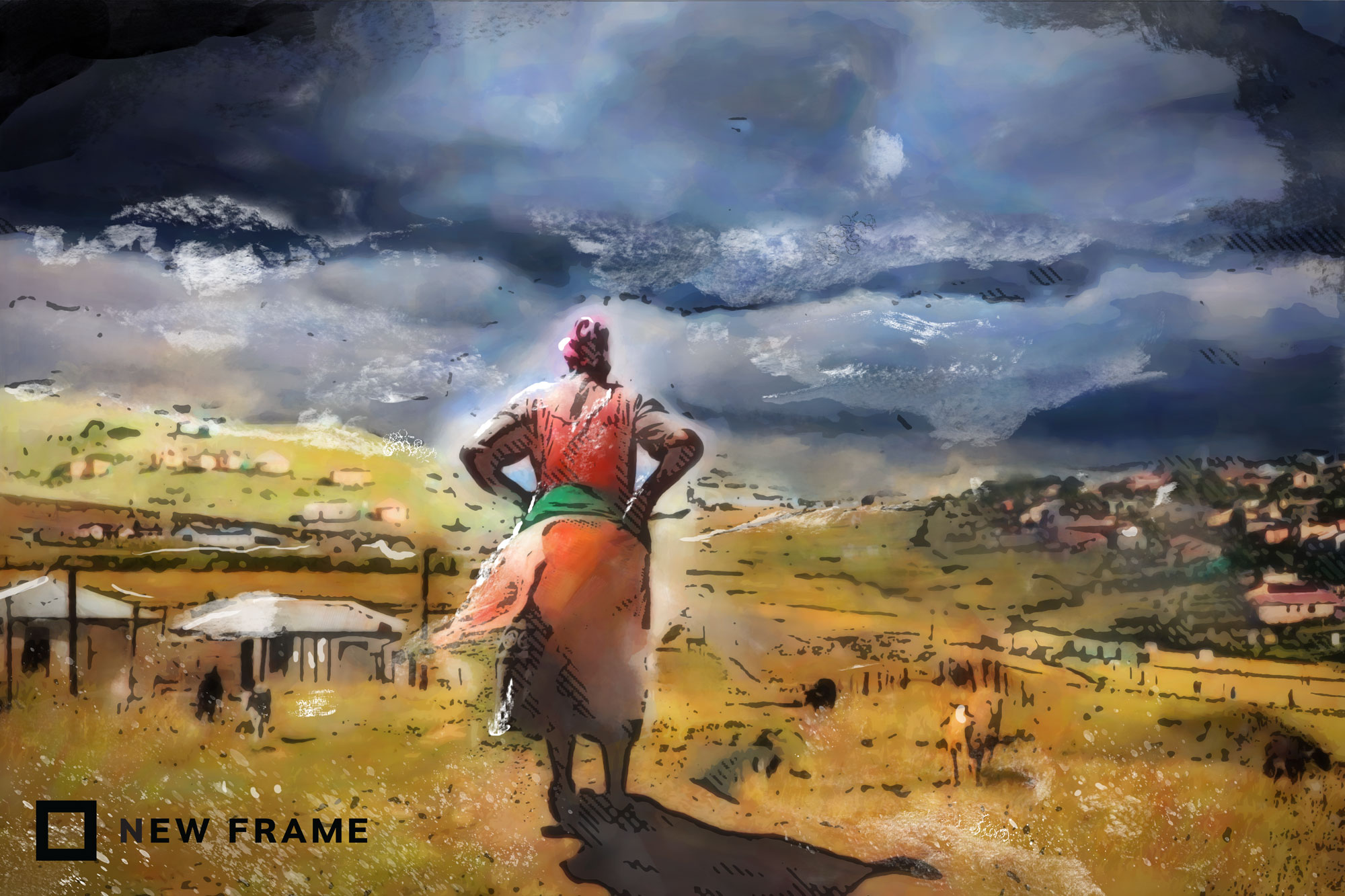Traditional Courts Bill denies democratic rights
A fabricated idea of tradition legitimates the way in which the bill enforces subordination to traditional courts, with no possibility to opt out.
Author:
26 February 2021

The Traditional Courts Bill, one of a number of pieces of legislation that activists refer to as the “Bantustan Bills”, will be back in Parliament next week. Popular organisations, grassroots feminists, progressive intellectuals and participants in public hearings have vigorously opposed the bill. It is a clear and crude attempt to entrench the system inherited from colonialism, through which the democratic dimensions of forms of law with their origins in pre-colonial practices are suppressed and people living in the former Bantustans are denied the full set of liberal rights extended to other citizens.
Some responses to the question of authority legitimated in the name of tradition are blind to the plainly evident reality that there are instances in which people, including women, find traditional authority more accessible and receptive to their views than elected authority. There have been traditional leaders who have represented their communities against the predatory designs of the ruling party and capital, and are held in high regard. We should be mindful that it is not uncommon, especially in KwaZulu-Natal, where political gangsterism is endemic, for people to be deeply fearful of elected authority.
Related article:
But it is equally clear that there are also instances in which traditional authority is oppressive. There have been all kinds of abuses, many of them gendered. In areas where traditional authority has intersected with mining capital and political elites, it has often become rapacious and dangerous. The Ingonyama Trust, which is enmeshed with the institution of traditional authority and administers almost a third of the land in KwaZulu-Natal, is notorious for maladministration, exploitation and the denial of access to land by women.
The Traditional Courts Bill denies people deemed to be subjects rather than citizens the right to opt out of traditional courts. As Land and Accountability Research Centre director Nolundi Luwaya has noted, this “undermines the consensual and affiliation-based nature of customary dispute resolution”. Moreover, while the bill does recognise the need to ensure that women can represent themselves in traditional courts, it does not take clear and effective measures to ensure this.
‘Imposed authorities’
Taken together, the “Bantustan Bills” and the general approach of the ruling party and the state to the question of traditional authority amount to the ongoing imposition of a neocolonial mode of domination that will constrain the autonomy of millions of people, reduce the strength of their hold on land and undermine their capacity to organise against powerful actors like mining companies.
As academic Sindiso Mnisi Weeks said with specific reference to the Traditional and Khoisan Leadership Bill, this is a project that “revives separate territorial enclaves in which poor, Black people are stripped of their citizenship rights (such as the right to speak for themselves) and are instead forced to be governed as subjects by imposed authorities that the government names ‘traditional’”.
Related article:
The fact that all this is justified as if it were an anti-colonial project is either deeply cynical, or deeply ignorant. As Ugandan intellectual Mahmood Mamdani has shown, the “tribe” is a colonial fabrication in which open and dynamic forms of political affiliation were turned into authoritarian ethnic forms of community imagined as primordial and unchanging.
The “native” – a creation of colonial intellectuals – was, Mamdani says, “pinned down, localised, thrown out of civilisation as an outcast, confined to custom and then defined as its product”. He adds that origin was taken as the sole factor enabling access to rights now mediated by “tribal” authority, with the result that residence was disregarded and “the native” portrayed “as a product of geography rather than history”.
Historian Paul S Landau has done extraordinary work to recover some of the aspects of the suppressed history of popular politics in the precolonial and colonial world. He shows, in impressive detail, that in direct contrast to colonial fantasies of “the tribe”, hybridity was at the centre of precolonial forms of politics, and that established nodes of authority were “capable of accommodating and embracing strangers” and had amalgamation as their central strength. Popular politics, centrally concerned with land and autonomy, often took the form of what he terms admixture, amalgamation and splittage.
Mamdani has also shown that, with the notable exception of Julius Nyerere in Tanzania, postcolonial elites have chosen to sustain or even entrench colonial forms of traditional authority, with harmful consequences. He notes that in much of postcolonial Africa, “more than a way of sanctifying a particular past, the talk of tradition was about justifying a particular present”.
Colonial ideas
The way in which the Traditional Courts Bill enforces subordination to traditional courts with no possibility to opt out is legitimated by a fabricated idea of tradition. It is being imposed with the specific political purpose of expelling millions of people from the democratic rights that do exist outside of the Bantustans, limited and uneven as they are, to shore up the political authority of elites and enable new forms of elite accumulation.
It is just one of a variety of different kinds of claims about returning to tradition that are, in fact, deeply entwined with colonial ideas about Africa’s people, politics and practices. Nomboniso Gasa, a leading feminist intellectual, has made this point by quoting a telling statement made by Hendrik Verwoed in 1955: “I have stated before that there was really a deliberate attempt … to lead the native away from what was fine in his rights and customs … I want to allow him to develop his own law … starting from a system of law which is his.”
Related article:
In a society in which impoverished people seeking to win or hold land and build or defend autonomy are subject to assassination by both elected authority and authority deemed to be traditional, neither mode of authorised power can be assumed to be inherently emancipatory. A crude moral binary between liberal democracy and forms of association, deliberation and collective decision-making that draw on humanistic and democratic currents in African practices is not useful. On the contrary, the most impressive and potentially emancipatory democratic experiments taking place in the ruins of our failed revolution draw freely on practices and ideas taken from a range of sources and practices, often altering them along the way.
Changing the name of Port Elizabeth to Gqeberha is a credible and valuable anti-colonial gesture, albeit one that is sullied by the appalling conduct of elected political authority in the city. But the Traditional Courts Bill is a neocolonial imposition that – in the context of the rich history of popular struggles against despotic forms of authority in the Bantustans – is well described as a project of elite reaction. It will be opposed in the courts, the streets and the villages.



